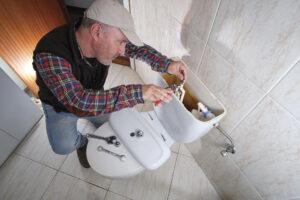Plumbing issues can be a homeowner’s nightmare, tempting many to roll up their sleeves and tackle repairs themselves to save a few bucks. While the DIY spirit is admirable, some tasks are best left to professionals. My recent attempt to replace a toilet taught me this lesson the hard way, turning a seemingly straightforward project into a costly, stressful ordeal. After four days of frustration, I ended up calling a plumber who fixed everything in a matter of hours. Here’s why it’s often smarter to call a plumber from the start instead of attempting to play one yourself.
The allure of DIY plumbing often stems from the desire to save money or gain a sense of accomplishment. However, without the right skills, tools, or knowledge, what starts as a cost-saving endeavor can quickly spiral into a disaster. My toilet replacement project is a prime example. It began with enthusiasm but ended in regret, with a series of mistakes that could have been avoided by hiring a professional.
The first misstep was purchasing the wrong size toilet. In my eagerness to get started, I took hasty measurements and ended up with a toilet that didn’t fit the space properly. This mistake alone cost me time and money, as I had to deal with returning the incorrect unit. Proper measurements require precision, and plumbers have the experience to ensure the right fit for your bathroom’s layout.
Next, The rookie error: I forgot to turn off the water supply to the toilet before starting the job. This oversight led to water spilling everywhere, damaging the bathroom floor. What began as a simple replacement now required costly floor repairs. A plumber would have known to shut off the water first, preventing this messy and expensive mistake.
Sealing the toilet properly is another critical step I botched. I didn’t apply the wax ring correctly, which is essential for creating a watertight seal between the toilet and the floor. This led to leaks that I didn’t notice until after I thought the job was done. Plumbers understand the nuances of sealing and have the tools to do it right, ensuring no water escapes where it shouldn’t.
Things went from bad to worse when I accidentally cracked the back tank of the new toilet during installation. Handling heavy porcelain components requires care and expertise, and my inexperience led to a damaged unit that needed replacing—another unexpected expense. A professional would have handled the toilet with the finesse needed to avoid such mishaps.
Perhaps the most frustrating part was that my efforts to fix a small leak in the original toilet resulted in even more leaks. Every adjustment I made seemed to create new problems, turning a minor issue into a plumbing nightmare. By the time I threw in the towel, I had spent more money on tools, replacement parts, and repairs than I would have paid a plumber to handle the job from the start.
After four days of stress, wasted money, and zero progress, I finally called a plumber. The professional arrived, assessed the situation, and completed the installation in just two hours. The toilet was properly sized, securely sealed, and fully functional—no leaks, no cracks, no water-damaged floors. Watching the plumber work with efficiency and expertise made me realize the value of their training and experience.
The lesson here is clear: while DIY projects can be rewarding for simple tasks like unclogging a drain or tightening a faucet, complex jobs like toilet replacement are often best left to professionals. Plumbers bring specialized knowledge, proper tools, and years of experience that can save you time, stress, and money in the long run. My attempt to save a few hundred dollars ended up costing me more than the plumber’s fee, not to mention the frustration and lost time.
So, when should you call a plumber? If the task involves intricate components, precise measurements, or the potential for significant damage—like water leaks that can ruin floors or walls—it’s time to pick up the phone. Problems like installing or replacing fixtures, addressing persistent leaks, or working with your home’s water supply system require skills most homeowners don’t have. Save DIY for smaller, low-risk tasks, and leave the heavy lifting to the experts.
My plumbing misadventure was a costly but valuable lesson. The next time a plumbing issue arises, I won’t hesitate to call a professional. The peace of mind, efficiency, and quality of work are well worth the investment. Don’t let the temptation of a cheap fix lure you into a DIY disaster—know your limits and call a plumber when the job demands. ![]()
Alan Lashbrook





